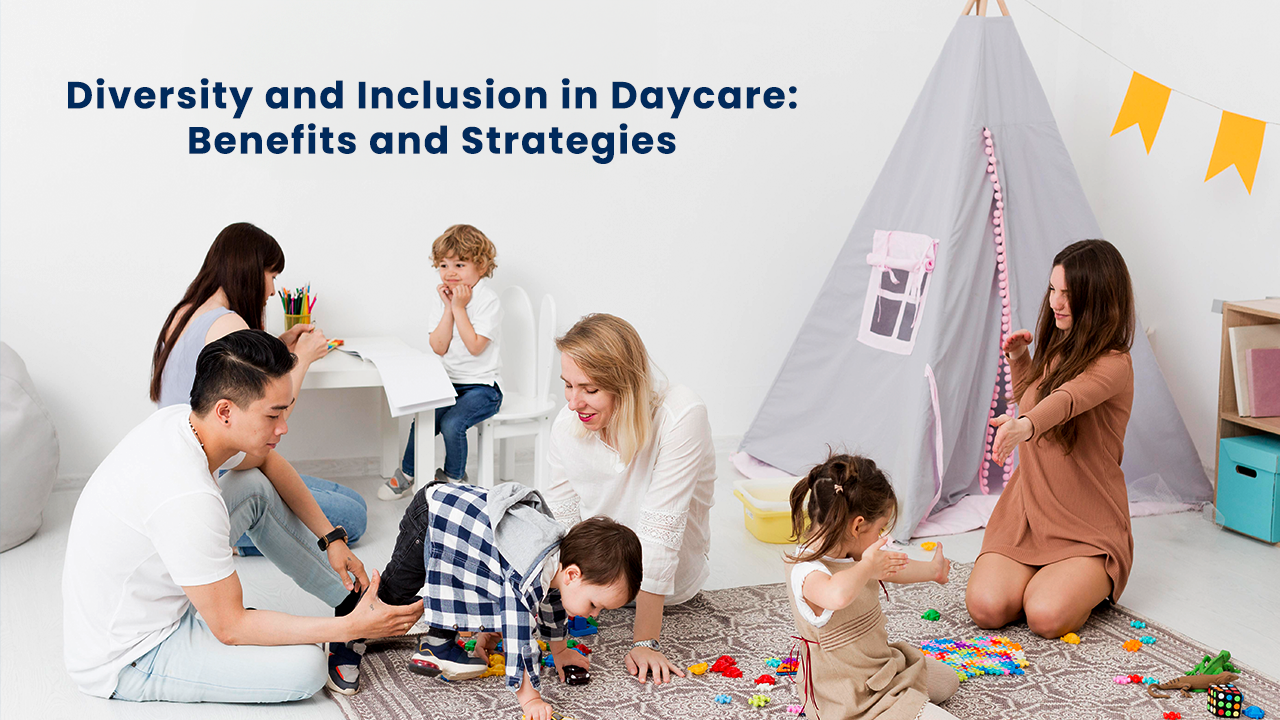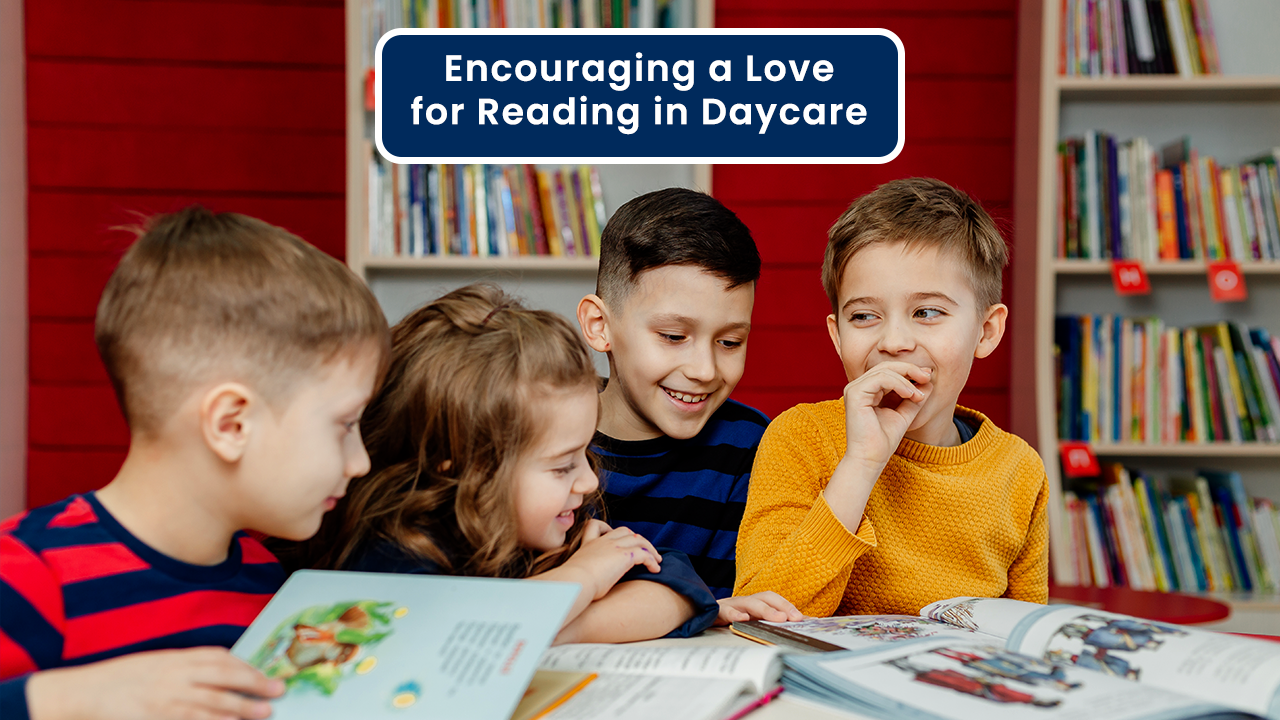
In today’s increasingly global society, understanding and appreciating diversity is essential. This recognition begins early, and where better to start than daycare? The concept of diversity and inclusion in daycare may seem a bit complicated at first.
Introduction to Diversity and Inclusion
Diversity refers to the mix of unique attributes in individuals; it’s the melting pot of races, cultures, religions, languages, abilities, and more. Inclusion, on the other hand, is making that mix work. It ensures everyone feels welcome and valued, regardless of their background. Can you imagine a football team where each player is allowed to showcase their unique skills, contributing to the team’s success? That’s inclusion at work!
Importance of Diversity and Inclusion in Daycare
Daycare centers are the mini versions of our society. When children interact with a diverse group at an early age, they learn to appreciate and respect differences. Just like different instruments in an orchestra come together to create a beautiful symphony, individuals’ diverse experiences and perspectives can harmonize to shape a more understanding and inclusive society.
Benefits of Diversity and Inclusion in Daycare Centers
Diversity and inclusion in daycare centers offer significant benefits for the children who attend, the parents, the staff, and the broader community. Here are some of the key benefits:
- Development of Social Skills
When children are exposed to diverse cultures, backgrounds, abilities, and languages at an early age, they develop better social skills. They learn to interact with others who are different from them and understand that these differences make each person unique. As they grow, this helps them become more adaptable and flexible in different social situations.
- Cultural Appreciation:
The inclusion of different cultures can foster an environment of respect and acceptance. It gives children the opportunity to learn about various customs, traditions, and values, encouraging them to appreciate different cultures from a young age.
Promotion of Equality
- Promotion of Equality:
By fostering diversity and inclusion, daycare centers can promote equality. Children learn that everyone should be treated fairly regardless of their race, religion, or ability, fostering a sense of fairness and justice.
- Enhanced Cognitive Skills:
Studies have shown that diversity and inclusion in early education can enhance cognitive skills. Exposure to diverse experiences can stimulate children’s curiosity, problem-solving skills, and critical thinking.
- Promotes Empathy and Compassion:
Children develop a deeper understanding of others’ feelings and perspectives when they interact with diverse groups. This can lead to the development of empathy, compassion, and tolerance, which are crucial life skills. Read More Tips on Providing Emotional Support for Children in Daycare
- Preparation for the Global World:
We live in a diverse world, and early exposure to different cultures, languages, and abilities can better prepare children for this global society. It can boost their confidence in interacting with different people and help them be successful in a multicultural world.
- Parental Peace of Mind:
Parents can feel more comfortable and assured knowing their children are in a setting that celebrates diversity and fosters inclusivity. This can enhance parent-staff relationships and increase satisfaction and trust in the daycare center.
- Reduction of Stereotypes and Prejudices:
When children interact with a diverse group of peers, they are less likely to develop biases and stereotypes later in life. It teaches them to value individuality over preconceived notions.
- Richer Learning Environment:
Diversity brings a mix of languages, traditions, stories, and experiences. This rich tapestry of backgrounds can enhance the learning environment, making it more engaging and informative for children.
- Staff Development and Satisfaction:
An inclusive environment can also benefit the daycare center staff. It can foster professional growth as they learn to handle and appreciate diverse cultures and abilities. Moreover, working in an inclusive environment can lead to greater job satisfaction.
In summary, diversity and inclusion in daycare centers provide a rich, dynamic environment that fosters learning and growth for everyone involved. Given these points, this will not only the children but also the parents, staff, and broader community.
Strategies to Develop Diversity and Inclusion in Daycare
Promoting diversity and inclusion in daycare centers is essential for creating a holistic and enriching environment for children. Here are the top five strategies to foster this:
- Culturally Relevant Curriculum:
- Integrate a curriculum that reflects the diverse backgrounds of the children attending the center.
- Include books, toys, and learning materials from various cultures, ethnicities, and languages.
- Celebrate cultural events, holidays, and traditions from around the world, exposing children to different customs and practices.
- Ongoing Training and Professional Development:
- Provide staff with regular training on cultural competency, unconscious bias, and inclusive teaching practices.
- Offer workshops and seminars that focus on understanding and addressing diverse needs, including those of children with disabilities or from different linguistic backgrounds.
- Encourage staff to share their own cultural backgrounds and experiences, fostering mutual understanding and respect.
Diverse Staff Recruitment
- Diverse Staff Recruitment:
- Ensure the hiring process is free from biases and promotes diversity.
- Aim to hire staff from a mix of cultural, linguistic, and ethnic backgrounds, which not only bring different perspectives but also serve as role models for the children.
- Partner with local community groups or organizations that can help connect the daycare with diverse candidates.
- Engaging Families and the Community:
- Organize regular meetings and events that engage families in the daycare’s activities, promoting mutual understanding and collaboration.
- Seek feedback from parents and caregivers about their cultural customs and preferences, incorporating this feedback into the daycare’s routines and activities.
- Partner with community leaders or organizations that represent different ethnic or cultural groups, inviting them to share their knowledge and experiences with the children.
- Inclusive Communication:
- Use inclusive language in all communication forms, such as written, verbal, or visual.
- If possible, offer guidance or materials in multiple languages, ensuring that non-English-speaking families can fully engage and participate.
- Establish clear guidelines for respectful communication among staff, children, and parents, addressing and rectifying any instances of bias or prejudice.
Implementing these strategies requires commitment, continuous assessment, and adjustments based on feedback and changing needs. However, the outcome of a more diverse and inclusive daycare environment is immensely rewarding for children, staff, and families alike.


